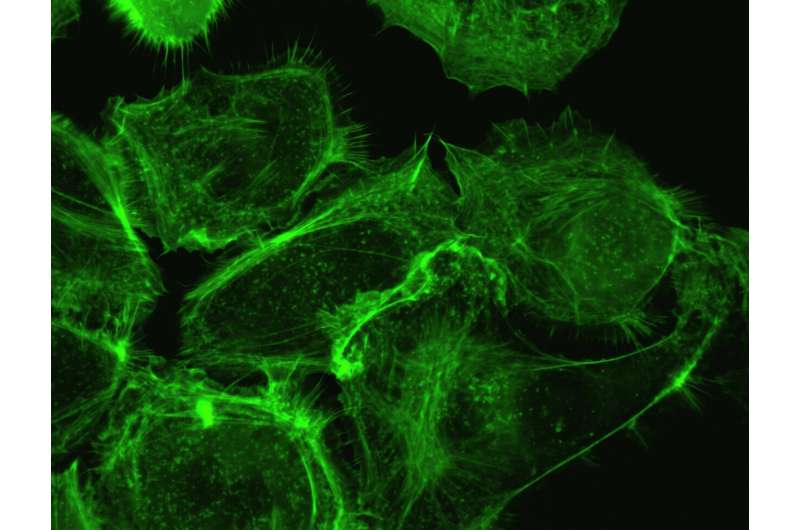This article has been reviewed according to Science X's editorial process and policies. Editors have highlighted the following attributes while ensuring the content's credibility:
fact-checked
peer-reviewed publication
proofread
Researchers demonstrate that a machine learning model predicts oxaliplatin benefit

The current standard of care for treating patients with stage 3 colon cancer is to use adjuvant therapy with FOLFOX, a combination of the drugs fluorouracil, leucovorin, and oxaliplatin. Although effective, the use of oxaliplatin can lead to known adverse events, mainly neurotoxicity that may be chronic.
NRG Oncology has tested a new machine learning model that can predict which colon cancer patients could derive benefit from the addition of oxaliplatin and could ultimately allow physicians to tailor treatment regimens better for their patients. The model used data from the NSABP C-07 and C-08 trials, both studies that utilized oxaliplatin in the treatment of colon cancer. These trials were conducted by the National Cancer Institute clinical trials Network Groups. Oxaliplatin was provided by Sanofi under a Cooperative Research and Development Agreement (CRADA) with NCI for both trials; and bevacizumab was provided by Genentech under a CRADA with NCI.
The results were recently published in the Journal of Clinical Oncology.
The model, named "COLOXIS" (colon oxaliplatin signature), was tested in 1,065 patients from the NSABP C-07 and C-08 studies. Of 1,065 patients, 421 were treated with 5-fluorouracil and leucovorin (FULV) and 644 were treated with FOLFOX. The model dichotomized patients into signature-positive and signature-negative. The signature-positive patients received benefit from oxaliplatin whereas the signature-negative patients did not.
"The goal of COLOXIS was to determine if we could isolate which patients benefit from the addition of oxaliplatin and which did not derive benefit. Understanding this could help minimize unnecessary adverse events for those who do not benefit," stated Katherine L. Pogue-Geile, Ph.D., one of the corresponding authors of the research.
Among the 1,065 patients included, 526 were predicted as COLOXIS-positive (signature-positive) and 539 were predicted as COLOXIS-negative (signature-negative). The COLOXIS-positive prediction was associated with prognosis for FULV-treated patients (HR=1.52, 95%CI=1.07-2.15, P=0.017). The model was predictive of oxaliplatin benefit: COLOXIS-positive patients benefited from oxaliplatin (HR=0.65, 95%CI=0.48-0.89, P=0.0065, int P=0.03), but COLOXIS-negative patients did not (COLOXIS-negative HR=1.08, 95% CI=0.77-1.52, P=0.65).
These findings are a step to understanding the benefit of reserving the use of oxaliplatin-containing regimens for specific patients. Further investigations are warranted to further validate this model with the goal of its application in clinical practice.
More information: Lujia Chen et al, Machine Learning Predicts Oxaliplatin Benefit in Early Colon Cancer, Journal of Clinical Oncology (2024). DOI: 10.1200/JCO.23.01080



















